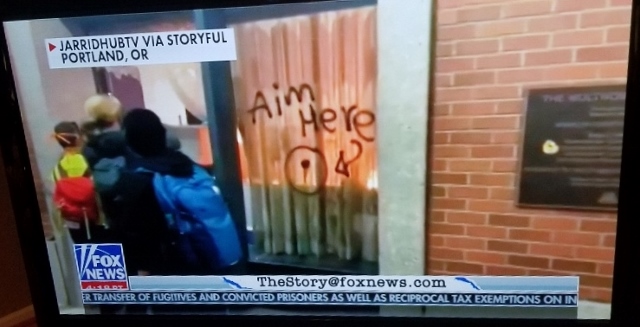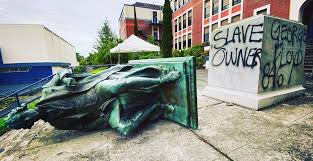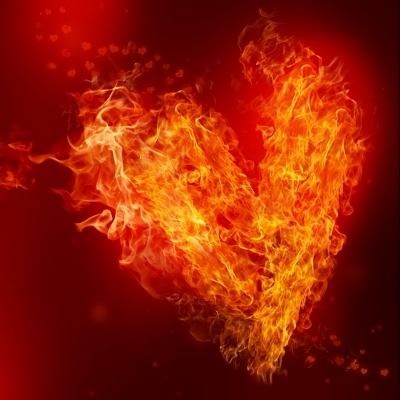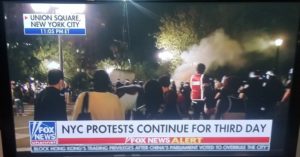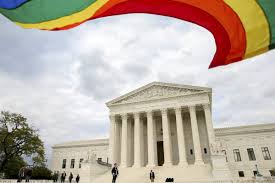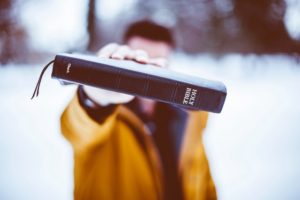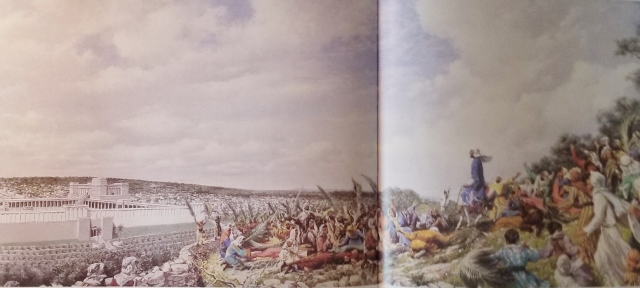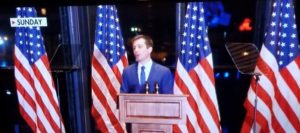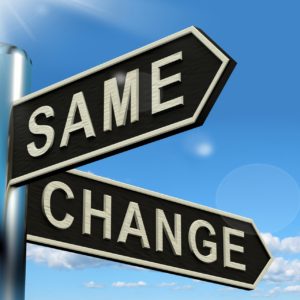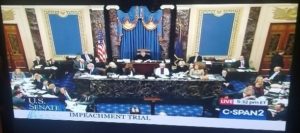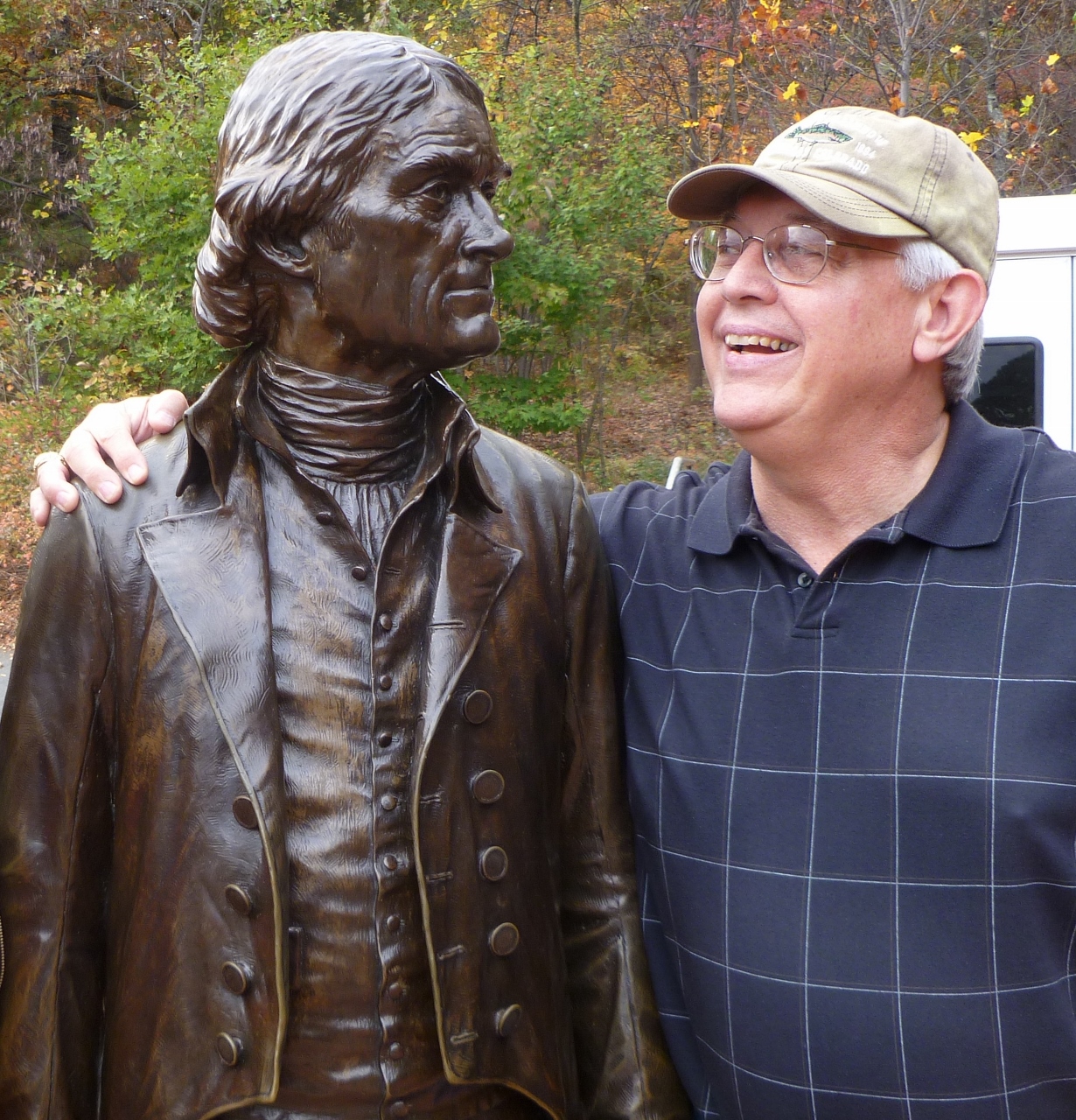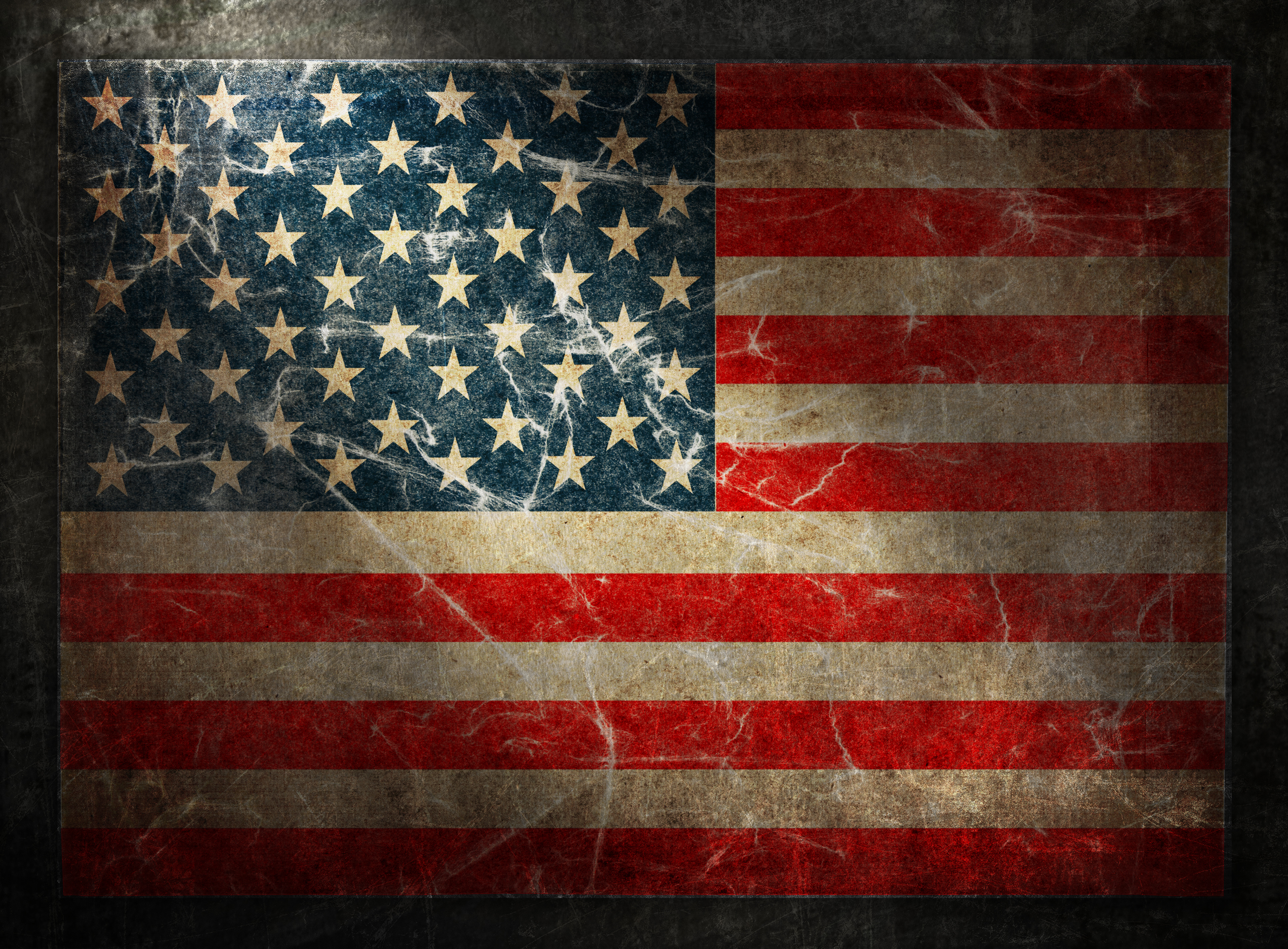America is hurting. Angry. Burning. As we watched George Floyd die under the knee of Officer Chauvin, the outrage in the Black community finally reached the tipping point. Demonstrations spread across the country. The outrage has been deeply felt in the White community too. In this unique moment of our cultural history, both sides seem united in empathy for George Floyd and a desire to see change.
Category Archives: Culture Shift/Hot Topics
A Brief History of Worldviews or…How did things get so crazy so fast?
 Why are we hearing a new vocabulary of “white fragility,” “whiteness,” “intersectionality,” etc? Why are we seeing peaceful protests continue weeks after George Floyd’s death; police, their precincts, courthouses, monuments and now churches still targeted by rioters and looters, and people losing their jobs if they don’t adhere to a new race-oriented orthodoxy? The short answer is…because we are seeing a shift at the worldview level. A view of oppressors and victims that originated in (and has been percolating in) the Academy for decades is reaching the tipping point. Rising into the mainstream with surprising speed.
Why are we hearing a new vocabulary of “white fragility,” “whiteness,” “intersectionality,” etc? Why are we seeing peaceful protests continue weeks after George Floyd’s death; police, their precincts, courthouses, monuments and now churches still targeted by rioters and looters, and people losing their jobs if they don’t adhere to a new race-oriented orthodoxy? The short answer is…because we are seeing a shift at the worldview level. A view of oppressors and victims that originated in (and has been percolating in) the Academy for decades is reaching the tipping point. Rising into the mainstream with surprising speed.
Should We Celebrate Our Founders, or Let Their Monuments Fall?
Is slave holding based on racism the unforgivable sin?
The wrenching death of George Floyd has energized the cancel culture to the tipping point. Statues of Confederate generals, even our Founding Fathers have tumbled down while police stand down from “sanctioned” protests.
The leader of one grass-roots group, Take-em-Down NOLA, said after the Charlottesville protest, “We recognize the original sin was the genocide of the Native Americans and the enslavement of the Africans. People bring up the fact that [slave masters] were Founding Fathers. That’s people’s opinions, but for us what disqualifies you is the slave-owning.”
Now, after Floyd’s death, this claim is boiling into action and in blue states and cities critical masses are embracing this perspective: slavery and racism are the “original” and unforgivable sins of America. As we recently heard over the July 4th holiday, many protesters cannot join in the celebration of the founding of what they believe to be a racist state. As followers of Jesus, how should we respond to this claim?
Coping, or Overcoming?
It’s easy to lose your mojo. It’s summer…when we normally downshift anyway. But more than that, we are weary of life with masks and distancing and non-stop news of the heart-breaking injustice, violence and loss in our cities. The stock market goes up and our hopes rise, only to plummet again.
To make matters worse, our election-aggravated culture war is starting to ramp up for five long months of political assault on our hearts. Hopes of returning to an economic or daily “normal” are sinking and for many a feeling of low to high-grade anxiety is settling in. Or perhaps a roller coaster of both.
There is much talk of how to cope. That is not what this post is about. Coping with all the issues mentioned above carries the idea that we are using strategies and methods to merely survive. Riding the roller coaster of news, events and emotions, but managing our fear and anxiety enough to stay on the rails and not launch into the abyss or crash at the bottom.
But interestingly, the word “cope” is not used in the Bible.
Virus, Floyd, Riots, the 1-2-3 Punch: Choosing Not to Fear
Proverbs 4:23 Above all else, guard your heart, for it is the wellspring of life.
How is your heart today? Seared by that slow-motion, snuff-film video? Rattled by the riots? On top of the virus threat that lurks out there as we begin to venture out, don’t they feel like a 1-2-3 gut punch?
My heart is grieved and angry over that video. And I’ve been ambushed by fear several times in the last few days. Maybe you have too.
LGBT Sexuality and Persecution: What are you prepared to do?
Growing up in the 1950’s and 60’s and reading what the book of Revelation says about the persecution of Christians in the end times, I could only imagine that such apocalyptic scenarios must be way, way off in the future. Surely beyond my lifetime. We didn’t know anyone who didn’t go to church. I couldn’t fathom how our culture could change that deeply and rapidly.
“Christian Cruelty in the Face of Covid!” 5 ways to detect how the media messes with the truth
We are so used to fake news we usually simply sigh and move on. But every once in a while, the “news” is so egregious and the manipulation of the truth so blatant that it’s worth sharpening our critical thinking to see exactly how logic and reason are being flayed and boiled in oil.
Atlantic Monthly writers offer in-depth reporting that I often appreciate. But they jumped the shark when they published a piece by former evangelical Jonathan Merritt: Some of the Most Visible Christians in America Are Failing the Coronavirus Test: In place of love, they’re offering stark self-righteous judgment (April 23, 2020).
Here is a simple summary of Merritt’s case:
Many Christians’ response to Covid is cruel. Instead of choosing to respond with love they are “choosing to emphasize judgmental messages.”
They are “shrugging their shoulders at mass death and heaping pain on the grieving”
Merritt offers 5 examples: author John Piper, First Things editor R.R. Reno, a megachurch billboard, White House Bible study leader Ralph Drollinger*, and pastor Robert Jeffress.
This judgment and hypocrisy makes nonreligious people despise Christians. It’s costing the religion dearly—people are walking away.
But what should we expect? These are the same people who support Trump because he is a “shit talker and a fighter.”
Christians should be known by their love. Some need to go back to Sunday School and discover their roots.
“This book will make you feel better about your life”
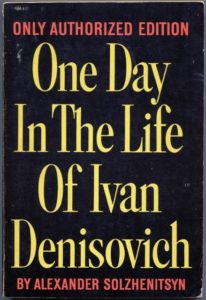 I’ve been feeling a bit like a prisoner in my own home lately. And you? Tired of reading article..article…article…article…, I knew I needed a shot of bigger perspective.
I’ve been feeling a bit like a prisoner in my own home lately. And you? Tired of reading article..article…article…article…, I knew I needed a shot of bigger perspective.
So I picked up a book I’ve been meaning to read for a long time–One Day in the Life of Ivan Denisovich.
Written by Russian Nobel Prize winner Alexander Solzhenitsyn and based on his own experience in the Gulag, Siberia’s network of “corrective labor camps,” I thought it might afford me a bit of a reality check on what it really means to feel like a prisoner.
And it has. But not by pounding me with horrific word pictures of torture, despair and madness.
Rather, with the artistry of understatement, irony and even wit, One Day, while written in big print and prison slang, offers great thoughts and deep meanings that gently percolate in my mind throughout the day–so different from the jangle of texts, Facebook posts and articles that leave us feeling over-stimulated and unfocused.
One Day is an easy read with a psychologically gripping ending I never saw coming. It makes me think. And give thanks.
Researching it a little more online, I discovered that when a movie based on the book was released in ’76, the narrator of the trailer hooked me with exactly what I was looking for: “This movie will make you feel better about your life.” So will the book. Much better.
Missing My Crowd, Unemployment: A Passion Week Lament and an Easter Challenge to Trust
It just feels wrong to spend Palm Sunday and Easter at home. I wished I’d been on my way to church yesterday instead of listening to a sermon on line. I so missed seeing our kids waving palm branches. Singing praises and hosannas in a room full of voices blending so strongly that my own is submerged in a sea of praise.
My morning began with a silent reading about a day of praise. Jesus riding in, gently, peaceably down the Mount of Olives through the Beautiful gate and the streets of Jerusalem.
What was missing yesterday was the crowds.
Can you imagine lining up behind Jesus 6 ft. apart? Walking down the Mount of Olives in single file? It really puts a damper on the joy. Sucks all the energy out of the scene. We were meant to worship in crowds. Multitudes. Singing loudly to our God and king.
It was just not the same singing along with the TV. Or even with a few neighbors on our decks/balconies.
Corona Virus and the Good, Loving Sovereignty of God
As I write this there’s a chance that Jack and I have been exposed to Covid-19. We were already starting to wind down non-essential outings, but when friends asked us to meet them for lunch last Wednesday, we agreed. They mentioned that their son had just returned from the Caribbean where he worked with a water purification project for a local ministry. When he left here there were no recorded cases in the Caribbean basin.
Pete Buttigieg, Gay Marriage and the Witness of the South Carolina African-American Church
If you read the obituaries on Mayor Pete Buttigieg’s presidential campaign you probably read many reasons for his loss, none of which mention his struggle to attract black church-going voters because he is gay.
Mayor Pete often made the case that his homosexuality was entirely compatible with his Christian faith. He said there are many different ways to interpret the Bible and that, in fact, his relationship with his husband made him feel closer to God. And if anyone had a problem with his sexual orientation they could talk to his Creator.
And yet, on CNN Dana Bash had interviewed South Carolina Rep. Jim Clyburn, 3rd ranking African-American in Congress, about this issue: “You said to me on this program in November that mayor Buttigieg will have trouble with older African-American voters in South Carolina because he’s gay. He’s done really well in Iowa. He’s done really well in New Hampshire. As voters learn more about him, do you think they will still feel that way?”
Two questions to ask every socialist-leaning candidate
Is socialism a more moral option than free markets?
At an ethics forum at the University of Oregon in 2012, Christian author Dinesh D’Souza and atheist Michael Shermer were both asked by a concerned Christian, “In my understanding of Christ’s teachings, taking care of the poor and the sick was of utmost importance. So I was hoping you could talk about why you don’t think that universal healthcare is a very important question for Christians these days.”
In this election year and the eve of the South Carolina primary his question still resonates. Is voting for universal health care a moral imperative for Christians? Is voting for socialized medicine in particular and socialism in general a more moral alternative to a free market economy?
D’Souza’s response raises two questions that every follower of Jesus should consider as we try to be good stewards of our citizenship and our vote in 2020.
Impeachment and Election 2020: Fighting Peaceably for What We Believe
Three questions to ask ourselves
In the midst of impeachment furor and an election year, how do we “seek peace and pursue it?” How do we, as Christians who are charged to show a watching world what the Kingdom of God looks like, talk about impeachment, our leaders and election issues in personal conversations? On social media?
Especially if we support President Trump. So many evangelical Christians, especially the younger generation, are wondering how evangelicals can support him and still follow Christ. Here are three questions to ask ourselves if we want to maintain a good witness and example in 2020:
Harry and Meghan Step Back from “Privilege,” Should we feel guilty too?
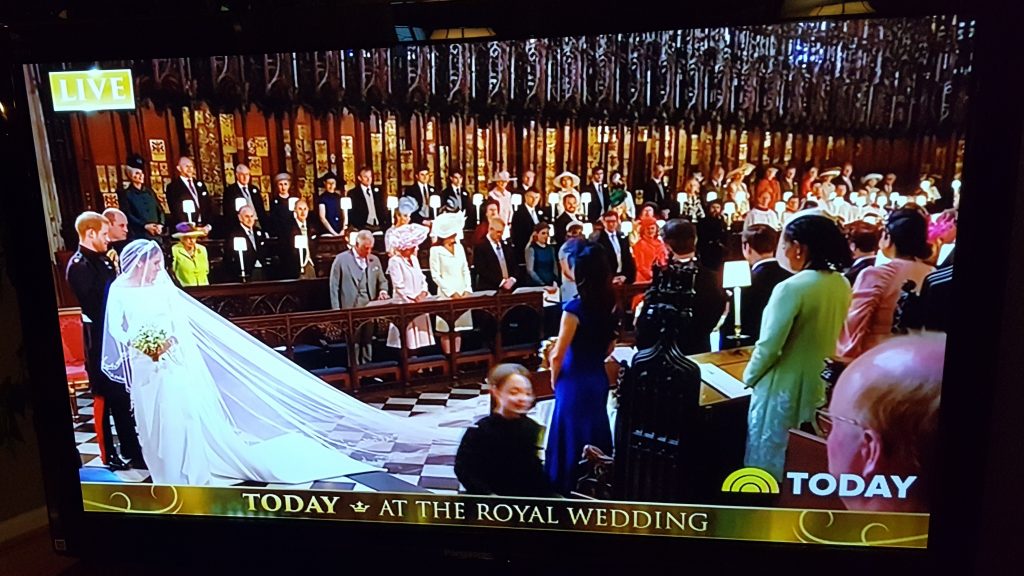 “Royal No More,” blared the headlines this weekend as Queen Elizabeth settled Prince Harry and Meghan’s appeal to become part-time royals with part time duties representing the crown. “No,” she replied. On Saturday she revoked their titles of HRH—his and her royal highness—and declared they will no longer represent her or the crown.
“Royal No More,” blared the headlines this weekend as Queen Elizabeth settled Prince Harry and Meghan’s appeal to become part-time royals with part time duties representing the crown. “No,” she replied. On Saturday she revoked their titles of HRH—his and her royal highness—and declared they will no longer represent her or the crown.
This came as a shock to Prince Harry who on Saturday described himself as “extremely sad” that a compromise could not be reached. More than any other members of the royal family, Harry and Meghan appear to be very ambivalent about the whole concept of “privilege,” so much so that they named their child Archie Harrison (Harry’s son)—a typical British, non-royal name, and have not asked the queen to give him the title of prince, as was done for William’s Prince Louis. They want to live a more non-royal life split between Canada and Windsor and raise Archie to be more of a normal child.
Why has the whole concept of “privilege” become suspect? What is “privilege”? How is it different from blessing? Should we feel guilty about our “privilege”?
HBO’s Chernobyl: Socialism’s Epic Fail is Summer’s Best Viewing
And holds profound lessons for 2020
During these dog days of summer, HBO is offering one week free access—just enough to watch the blockbuster 5-part series (if you didn’t see it in May) on the 1986 nuclear plant disaster that spread radiation all across Europe. Extremely well-written, terrific acting and an uncanny replication of 1986 Soviet Union, according to my husband who has taught theology there many times. And, It. Is. Riveting.
The series begins with Valery Legasov, First Deputy Director of the Kurchatov Institute of Atomic Energy, recording tapes he will secretly pass on to his fellow scientists. As the lead scientist on the committee to investigate the disaster, he vents his frustration with the core values of Soviet socialism:
“What is the cost of lies? It’s not that we’ll mistake them for the truth. The real danger is that if we hear enough lies, we no longer recognize the truth at all. What happens then? All we can do is abandon the truth and content ourselves instead with stories.”
But at Chernobyl, all the State stories hit the wall of reality.
Legasov knew the truth as soon as he read the first report: graphite was on the ground outside the reactor. The reactor had not simply released steam, like Three Mile Island. Neither did the core melt down from a disruption in the cooling system. Chernobyl’s core had exploded.
Sephora’s Transgender Ad: “We belong to something beautiful”
If we could sit down for coffee I'd ask some questions...
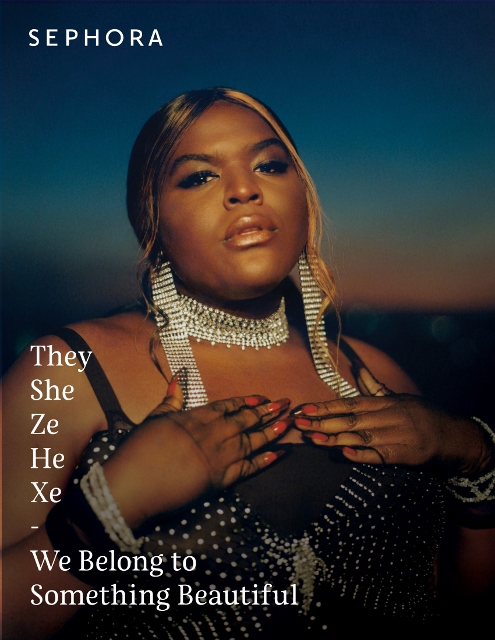 Walking down the mall last week I saw this large poster in the Sephora makeup retailer window. It was the end of June, gay pride month, and of all the messages I’d seen celebrating LGBT I found it the most riveting–a made-up face with the gender neutral pronouns down the side and the ad campaign slogan across the bottom: “We belong to something beautiful.”
Walking down the mall last week I saw this large poster in the Sephora makeup retailer window. It was the end of June, gay pride month, and of all the messages I’d seen celebrating LGBT I found it the most riveting–a made-up face with the gender neutral pronouns down the side and the ad campaign slogan across the bottom: “We belong to something beautiful.”
I continued on to my car, but the poster haunted me. I live in Columbia, South Carolina, not exactly a hotbed of LGBT activism. But here was this poster in our neighborhood mall going beyond asking for acceptance for transgendered people. It went beyond celebration of diversity. It made a strong moral statement: Transgender is beautiful.
When it is July hot and 150% humidity, I walk for exercise in the mall. So a few days later I was back, approaching the store and considering whether to talk with the manager. I reached the store and searched the windows. No poster. I entered and who should greet me but…the manager. She welcomed me with a friendly smile.
“Can I help you?” she asked.
“Hello,” I said. “Yes, last time I passed by you had a poster in your front window that said, ‘We belong to something beautiful.’ I noticed that today it’s gone…”
“Yes,” the manager responded, “we passed the end of the month and we always change them after a month.”
“I’ve wanted to tell you that I’ve really been thinking about your poster and its message.”
Three Reasons Why I Honor Our Slave-Holding Founders and Celebrate July 4th
The leader of one grass-roots group, Take-em-Down NOLA, has said, “We recognize the original sin was the genocide of the Native Americans and the enslavement of the Africans. People bring up the fact that [slave masters] were Founding Fathers. That’s people’s opinions, but for us what disqualifies you is the slave-owning.”
Many have embraced this perspective: slavery and mistreatment based on race is the “original” and apparently unforgivable sin of America. They cannot join in the celebration of the founding of a racist state. As followers of Jesus, how should we respond? Especially on July 4th?
“I am not my body!” Compassion, peace and hope when we feel alienated from our bodies
May God deepen our compassion for those who live in this tension and bring us wholeness and peace
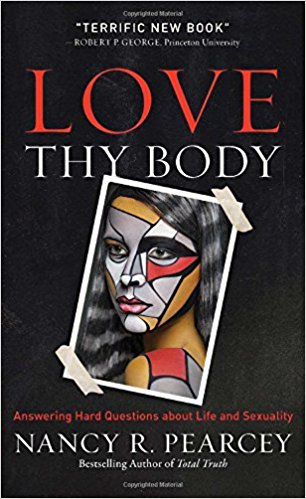 Whether because of aging, illness, gender dysphoria, injury, anorexia, or even weight gain, many of us feel that who we are on the outside is not who we really are on the inside. When I first encountered the transgender community rallying cry, “I am not my body,” I was shocked. “I am not my body” had been my heart cry for years.
Whether because of aging, illness, gender dysphoria, injury, anorexia, or even weight gain, many of us feel that who we are on the outside is not who we really are on the inside. When I first encountered the transgender community rallying cry, “I am not my body,” I was shocked. “I am not my body” had been my heart cry for years.
I was diagnosed with rheumatoid arthritis at age 29.
I could empathize with the trans who felt like the male on the inside didn’t really align with her biologically female body. Or the gay guy feeling like his inner longings for connection did not align with his body’s ability to connect. I too felt like: This body betrays me. It’s not who I really am in my heart of hearts.
With the onset of RA I began to fight terrible pain and loss of mobility. The joint pain that had settled into my feet moved steadily up my body—knees, hips, hands, elbows, shoulders. Ten weeks after it began I remember lying in bed the night my jaw joint started to ache. My inner snark thought, Well, at least it can’t spread any further. No joints in my brain.
Landing at Normandy with a “lawn chair and a book to read”
Today is June 6, and TV and newspapers are filled with commemorations of the 75th anniversary of the D-day invasion of Normandy in World War II. In order to land 130,000 troops on a shoreline without harbors (where they wouldn’t be expected), an entire nation had to drop their daily concerns and become players in winning the historic battle.
In the segregated South, a small landing craft factory employing eighty people hired tens of thousands of whites and blacks, men and women, all working shoulder to shoulder, making the same wage. Troops trained, jumping out of boat-sized cardboard boxes and high-stepping through imaginary surf with their rifles up until exhaustion. On the morning of the invasion, more than 2,500 Americans were shot, blown up, or drowned.
Back home in New York’s Grand Central Station, when the invasion was announced, a woman sitting on a bench sank to her knees in prayer, and then another and another, until almost the entire crowd kneeled to pray for God’s mercy on their sons and countrymen. In wartime Grand Central Station became a house of prayer.

